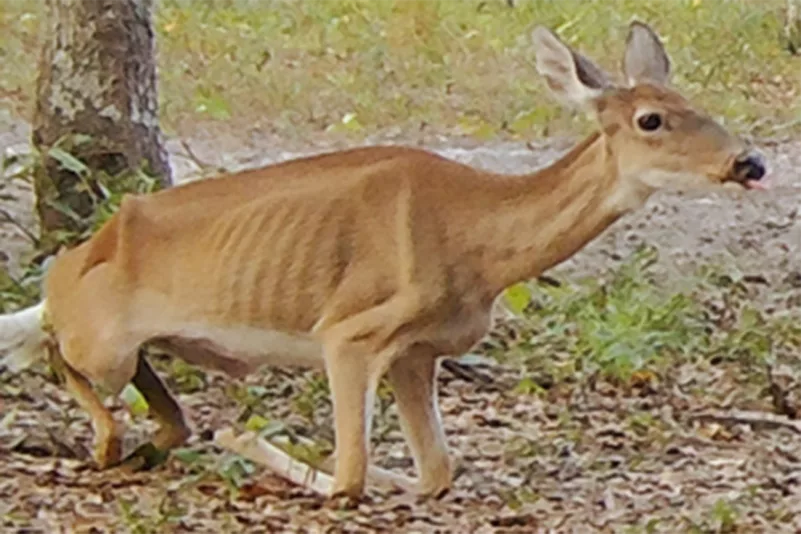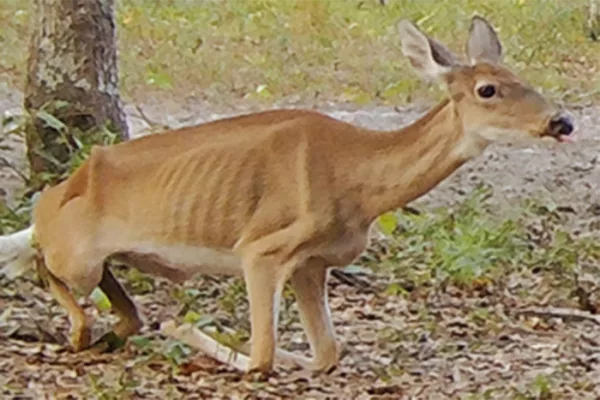
A deer with Chronic Wasting Disease (CWD) has been identified in Breckinridge County, according to the Kentucky Department of Agriculture (KDA).
“On October 11, the National Veterinary Services Laboratory (NVSL) notified the Kentucky Department of Agriculture, Office of the State Veterinarian of a positive Chronic Wasting Disease (CWD) test from a deceased deer at a deer farm in Breckinridge County,” the KDA said.
The farm, a participant in the state deer program, has been issued a quarantine restricting movement into or out of the facility, including live deer or deer products.
The Office of State Veterinarian established a management (five-mile radius) and surveillance (15-mile radius) zone for herds near the affected deer farm.
“The Office of State Veterinarian is diligently reviewing recent movement records, and all deer farms in the management and surveillance zones are under restricted movement until further order of the State Veterinarian,” according to the KDA.
The Office of State Veterinarian is implementing the Chronic Wasting Disease Response Plan that was approved by the Kentucky Department of Agriculture and the Kentucky Department of Fish and Wildlife Resources in 2022.
More information about the Office of State Veterinarian’s response will be updated on the state Veterinarian’s website: https://www.kyagr.com/statevet/farmed-cervids.html.
Chronic Wasting Disease
The Centers for Disease Control and Prevention describe CWD as follows:
CWD is a type of prion disease. These diseases occur when proteins normally in the body misfold, causing symptoms that eventually result in death. CWD affects many different species of animals with hooves. Other prion diseases in animals are bovine spongiform encephalopathy in cows and scrapie in sheep and goats.
Scientists think CWD spreads between animals through contact with saliva, blood, urine or feces of an animal with CWD. They suspect it can also spread indirectly through the environment, such as in soil, drinking water or food.
Once an animal gets sick, the disease moves to its brain and spine and eventually kills the animal. CWD does not appear to naturally infect cows, other livestock or pets.
The U.S. Department of Agriculture regulates deer and elk raised on farms for meat. The agency operates a voluntary national CWD herd certification program. In the program, states and herd owners agree to take actions to decrease the risk of CWD in their herds. Privately owned herds that are not in the program may be at increased risk for CWD.
(Photo: A deer with CWD in Michigan, courtesy of BridgeMichigan.com)
By Ken Howlett, News Director
Contact Ken at ken@k105.com









